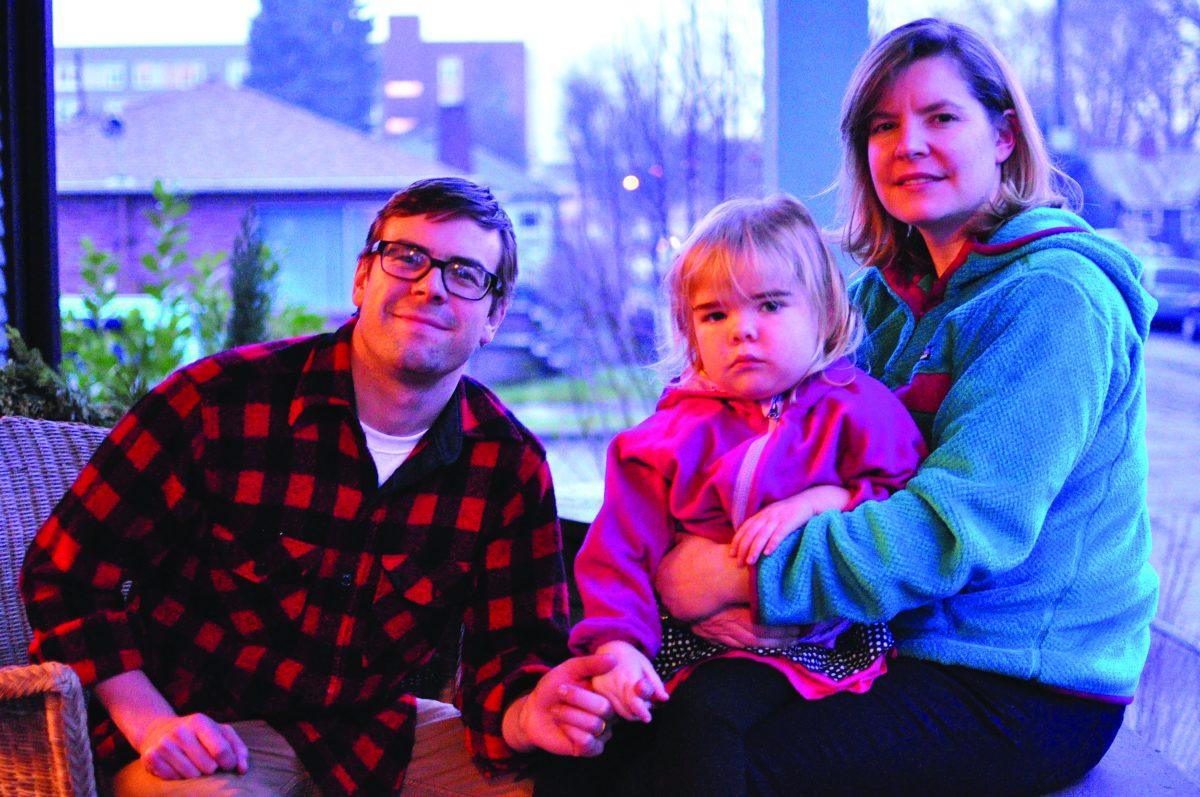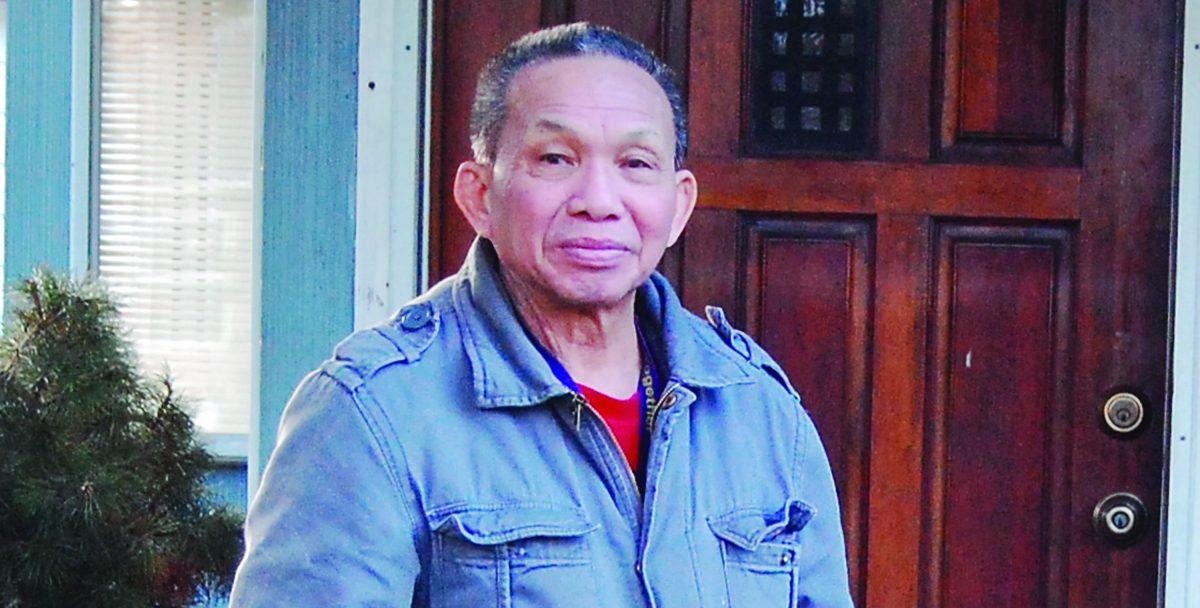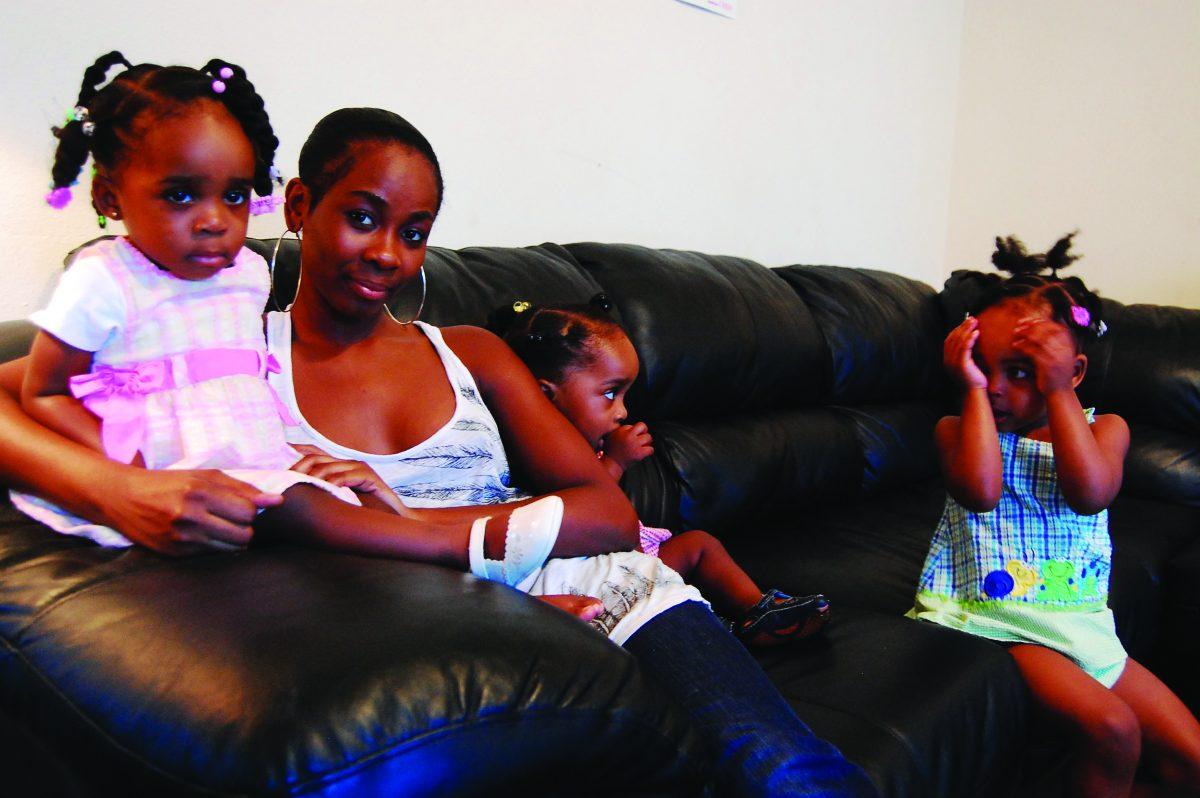Andy Benhardt shifted restlessly in the hospital chair last fall. Across the room, hooked up to machines, slept his three-year-old daughter, Alta. While watching her Benhardt clicked back over the previous days filled with medical tests for his then-fragile daughter.
Benhardt and his wife, Hillary, had spent nine consecutive nights in Doernbecher Children’s Hospital, trying to find a way to make sure their daughter’s epileptic seizures didn’t start again.
Originally diagnosed in 2010, doctors had prescribed a hormone therapy last year to help stop the seizures that started when she was born. And it worked for a time until September 2011 when her potassium levels plummeted and her blood pressure spiked.
“It was our first time in crisis mode,” Benhardt recalls of that time at Doernbecher.
Benhardt works as a special educator at Grant High School, assisting students who need extra help and different methods to learn. At home, Benhardt and his wife spend their time nurturing their daughter and trying to make her life as normal as possible. They don’t know when or if the seizures will hit their only child again, but they say it’s more important to focus on her health than what might happen in the future.
Benhardt was born in 1979 in Southern New Hampshire.
His mom was a special educator and his dad was an administrator at an alternative school. Growing up, he would see his mom come home smiling and hear her talk about her students. She loved what she did and Benhardt wanted to follow her path.
After graduating high school, Benhardt stayed close to home, attending Plymouth State University. During the summer, between his third and fourth year, he met Hillary Neun, while working at a snowboard camp on Mount Hood. Neun attended the University of Oregon and at the end of the summer when they went back to school, they made promises to stay in contact.

Benhardt finished school and moved to Portland in 2002 with a group of friends. He worked as an aide in residential homes while Neun finished school. They dated for a while until Benhardt decided to propose. They married in July 2007 at an intimate ceremony for close family and friends. Benhardt doesn’t just work at Grant as a special educator. He is also the freshman girls soccer coach and snowboard coach.
Alta was born on August 29, 2008. The Benhardts didn’t know that she was epileptic. Sometimes, her stomach and arms would flex, and her eyes would focus on something nearby in the room, but only for a few seconds. It wasn’t until Alta experienced a series of seizures that the Benhardts thought her movements were strange. “It seemed like a normal movement and nothing really extreme,” Andy Benhardt recalls.
After Alta was diagnosed with epilepsy, the Benhardts realized she had seizures when she would first wake up and when they would change her diaper. “She has a pretty predictable seizure. It is unobtrusive and only lasts a few seconds,” Andy Benhardt says.
By mid July 2011, Alta struggled being a part of her group at school. She would walk around with other kids but was withdrawn. She spoke very little, using one word to make her point. She didn’t play games with others. She ran around without focus and appeared to not understand how to do certain things, almost like she was in a daze.
“When she wanted milk, she would just say ‘milk’ or ‘fridge,’” Hillary Bernhardt says. “She could not put phrases together.”
Alta remained physically active and Andy Benhardt would often take her on outings to parks and the zoo, pulling her in her wagon.
These days, Alta is back on track. She stands next to Andy Benhardt in the kitchen, waving an empty glass to indicate what she wants. Encouragingly, he says, “What would you like? Go ask mommy for some milk. Say, ‘Can I have some milk?’” Alta takes the empty glass and walks over to her mom and does her best at repeating the phrase.

Now that she is seizure-free, the parents are helping her make up for lost time. They talk to her using complete, repetitive phrases. This is so she can hear them more than once and hopefully have them click in her mind that she can use them.
In pre-school, Alta is rapidly catching up to her peers socially. A couple days after going on the hormone therapy, the seizures stopped and she started to focus on toys, games and interacting with her peers.
On a recent day, she opens a box with make-believe fruit in it and mimics her mom by pretending to slice it. Andy Benhardt tells her to put the toys back and she does it without hesitation. When speaking to Alta, the Benhardts always use a clear and uplifting tone, which evokes a positive reaction from their daughter.
“Knowing that she has epilepsy definitely changes the way that I think,” Andy Bernhardt says. “I have to be wary of it all the time but I try not to think about it a lot. When I am on the mountain or on the soccer field, I am not worried about it. If something happens like when we went to the hospital for nine days, I focus on the good.”
He missed days of school at Grant when Alta was being weaned off the hormone therapy. He sometimes found himself thinking he needed to be at school for his students.
“I remember waking up and driving to school at like 6:00 in the morning because I hadn’t got anything done that night and then thinking, ‘Wait, I can’t do this.’” Then he turned around and headed back to the hospital.
Benhardt likes to spend his time outside school going on walks with his daughter. The family also goes cross-country skiing while pulling Alta behind them in a sled.
Closer to home, Benhardt and his wife play music through their iPod so that Alta can dance. They have two cats that she plays with, as well. Unlike most teachers, Benhardt doesn’t come home and grade papers. Instead, he reads to Alta or plays with her.
Benhardt’s experience has had an impact on the way he teaches his classes. When his students arrive to school on time and they have finished their work, he rewards them with a break and a game of basketball. The goal is to keep school fun and engaging. “I provide a sort of consistency to their life,” he says.
He has some students who he needs to motivate to come to school because they wouldn’t otherwise. Benhardt greets every day with a positive attitude and an open mind; he has to because between Alta and his students, he never knows what is going to be thrown at him.
He focuses in one realm at a time: school during the day and home during the night. He tries not to mix the two because, he says, “To do my job as a dad and as a teacher well, I have to really focus and put everything into it.”
“You have to have a positive attitude through things like this, you know?”

































